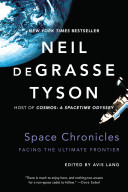History of Science and Religion
Some people want to put warning stickers on biology textbooks, saying that the theory of evolution is just one of many theories, take it or leave it. Now, religion long predates science; it'll be here forever. That's not the issue. The problem comes when religion enters the science classroom. There's no tradition of scientists knocking down the Sunday school door, telling preachers what to teach. Scientists don't picket churches. By and arge—though it may not look this way today—science and religion have achieved peaceful coexistence for quite some time. In fact, the greatest conflicts in the world are not between religion and science; they're between religion and religion.
This is not simply an academic point. Let's go back a millennium. Between a.d. 800 and a.d. 1200 the intellectual center of the Western world was Baghdad. Why? Its leaders were open to whoever wanted to thinkstuff up: Jews, Christians, Muslims, doubters. Everybody was granted a seat at the debating table, maximizing the exchange of ideas. Meanwhile, the written wisdom of the world was being acquired by the libraries of Baghdad and translated into Arabic. As a result, the Arabs made advances in farming, commerce, engineering, medicine, mathematics, astronomy, navigation. Do you realize that two-thirds of all the named stars in the night sky have Arabic names? If you do something first and best, you get naming rights. The Arabs got naming rights to the stars twelve hundred years ago because they charted them better than anybody had done before. They pioneered the fledgling system of Hindu numerals in the new field of algebra, itself an Arabic word—^which is how the numerals came to be called "Arabic numerals." "Algorithm," another familiar word, derives from the name of the Baghdad-based mathematician who also gave us the basics of algebra.
So what happened? Historians will say that with the sack of Baghdad by Mongols in the thirteenth century, the entire nonsectarian intellectual foundation of that enterprise collapsed, along with the libraries that sup¬ ported it. But if you also track the cultural and religious forces at play, you find that the influential writings of the eleventh-century Muslim scholar and theologian Al-Ghazali shaped how Islam viewed the natural world. By declaring the manipulation of numbers to be the work of the devil, and by promoting the concept of Allah's will as the cause of all natural phenomena, Ghazali unwittingly quenched scientific endeavor in the Muslim world. And it has never recovered, even to this day From 1901 to 2010, of the 543 Nobel Prize winners in the sciences, two were Muslims. Yet Muslims comprise nearly one-fourth of the world's population.
Today among fundamentalist Christians as well as Hassidic Jews, there is a comparable absence. When societies and cultures are permeated by nonsecular philosophies, science and technology and medicine stagnate. Putting warning stickers on biology books is bad practice. But if that's how the game is to be played, why not demand warning stickers on the Bible: 'Some of These Stories May Not Be True.'
Notes:
How the Middle East was the center of scientific progress until religious fever took over it, the same is seen in Jewish and Christian cultures.
Folksonomies: history science religion
Taxonomies:
/religion and spirituality (0.490062)
/religion and spirituality/islam (0.452536)
/sports (0.303381)
Keywords:
Sunday school door (0.929369 (negative:-0.408729)), nonsectarian intellectual foundation (0.904051 (neutral:0.000000)), eleventh-century Muslim scholar (0.895696 (positive:0.451579)), Arabic numerals (0.824829 (neutral:0.000000)), Hindu numerals (0.804139 (neutral:0.000000)), religion (0.800141 (negative:-0.055256)), Middle East (0.799741 (neutral:0.000000)), Christian cultures (0.794309 (neutral:0.000000)), biology textbooks (0.793114 (negative:-0.445801)), religious fever (0.792934 (neutral:0.000000)), Arabic names (0.789943 (neutral:0.000000)), peaceful coexistence (0.789895 (positive:0.362678)), Western world (0.789271 (neutral:0.000000)), academic point (0.788910 (negative:-0.334525)), warning stickers (0.788357 (negative:-0.770917)), scientific progress (0.788249 (neutral:0.000000)), science classroom (0.786085 (negative:-0.503493)), Hassidic Jews (0.778791 (negative:-0.298854)), greatest conflicts (0.774879 (negative:-0.332375)), comparable absence (0.774097 (negative:-0.470666)), intellectual center (0.772243 (neutral:0.000000)), night sky (0.770884 (neutral:0.000000)), natural world (0.770023 (positive:0.451579)), new field (0.767559 (neutral:0.000000)), Muslim world (0.767271 (negative:-0.388956)), theologian Al-Ghazali (0.767062 (positive:0.451579)), familiar word (0.766151 (negative:-0.241206)), thirteenth century (0.764715 (neutral:0.000000)), Baghdad-based mathematician (0.763999 (neutral:0.000000)), fundamentalist Christians (0.763548 (negative:-0.298854))
Entities:
Baghdad:City (0.754194 (neutral:0.000000)), Middle East:Region (0.422889 (neutral:0.000000)), theory of evolution:FieldTerminology (0.394965 (negative:-0.225098)), Ghazali:Person (0.372126 (negative:-0.388956)), Nobel Prize:EntertainmentAward (0.366954 (neutral:0.000000)), a.d.:Country (0.320814 (neutral:0.000000)), twelve hundred years:Quantity (0.320814 (neutral:0.000000))
Concepts:
Islam (0.951337): dbpedia | freebase | opencyc
Science (0.645990): dbpedia | freebase | opencyc
Iraq (0.636811): geo | dbpedia | ciaFactbook | freebase | opencyc | yago
Western world (0.545968): dbpedia | freebase | opencyc | yago
Middle East (0.502580): dbpedia | freebase | yago
Early Islamic philosophy (0.491747): dbpedia | freebase
Muhammad (0.490990): dbpedia | freebase | yago
Scientific method (0.485680): dbpedia | freebase





